By Olivia Miwil - January 21, 2021 @ 11:38am
Pictures courtesy of Richard Swann.Olivia Miwil is elated when diving is allowed prior to MCO 2.0. With an eye on the SOP, she dives right in at one of the Tunku Abdul Rahman Park islands in Sabah and is awed by the magical underworld
THE diving equipment in my store has been gathering dust, thanks to the travel and activity restrictions since March last year.
Before the pandemic, diving was my bimonthly routine. Towards the end of September last year, Sabah's daily Covid-19 cases shot up due to the movement of people during the month-long state election.
Soon after, daily updates indicated that the virus had spread among the community.
By December, thankfully, the number of cases came down. With an average three-digit daily cases being reported in the state, the authorities decided to allow more economic and social activities — including scuba diving — albeit with strict standard operating procedures (SOP).
DO I DIVE?
While the relaxation in rules is a welcome news, I still fear going about in public and indulging in my favourite hobby.
A gamut of emotions and worry envelop me. What are the odds that I will not be infected if others or the staff do not comply with the SOP? Will the staff use appropriate disinfectant for rental diving equipment, including the regulator that is used for breathing underwater? What is the likelihood that my dive buddies are asymptomatic?
THE NEW NORMS
For Downbelow managing director Richard Swann, who is also a five-star PADI Platinum Course director, safety is of the utmost importance when it comes to diving apart from having fun underwater.
Prior to signing up for a leisure dive day trip with Downbelow dive centre, I first carry out thorough research on the scuba-diving activities that are available.
The Downbelow dive centre is based at one of the islands off Tunku Abdul Rahman Park.
Swann takes Covid-19 prevention seriously by ensuring his employees sanitise the premises regularly and use the recommended disinfection agent for diving gear, among others.
Of course, to be on the safe side, it is best that divers bring their own personal gear to minimise transmission especially the diving mask and regulator.
During the registration and briefing, divers are constantly reminded to maintain physical distancing and, when not in the water, to wash their hands constantly and wear face masks.
These SOP may be difficult for some divers but not for me — my paranoia makes these regulations easy to follow.
Apart from following the standard SOP, I also take the initiative to set up my own gear instead of getting the staff to assist, like I usually do.
The centre also complies strictly with the requirement of having only half capacity for the boat although this means the business, which has been operating for the past two decades, may hardly break even.
While aware of the slim profit margin, Swann has been among the first to offer diving as he wants people to come back to diving.
THE DIVE
My four dive buddies and I have not been in the sea for months and so the moment we descend, it is like we are seeing the underwater view for the first time. It is indeed breathtaking with colourful corals and abundant fish.
At the far corner of the dive site, which is near Sapi island, we are welcomed by a school of yellowback fusilier and circled by a shoal of barracuda, among others.
Such a phenomenon is usually only seen at Sipadan dive sites in Semporna, which require long hours travel by road and additional flight cost from Kota Kinabalu.
Divers of Tunku Abdul Rahman Park are awed by an abundant school of fish, turtles and colourful corals.Therefore, to see all that just 10 minutes by boat from the city is indeed a lucky break for us.
The sensation of being underwater and weightless is certainly therapeutic for me after all those months spent indoors, with the blue sea enveloping me with a sense of calm.
It's such a priceless experience that I almost believe I will risk a Covid-19 infection for it. But of course I am thankful that I am well and will certainly not take unnecessary risks in this time of the pandemic.
THE PARK
Tunku Abdul Rahman marine park, which is named after Malaysia's first Prime Minister, was gazetted in 1974 to protect its fauna, flora and marine ecosystem.
The park covers five islands — Gaya, Manukan, Mamutik, Sapi and Sulug — and they used to be popular with tourists, both local and from abroad, who go there for snorkelling and kayaking, among other activities.
While the decline in tourist activity has impacted the islanders economically, it has significantly improved the biodiversity of the marine park under the care of Sabah Parks, the statutory body entrusted by the state government to look after these gazetted areas.
Apart from the five islands, advanced divers will also have access to a 52-year-old KM Kuraman vessel which has lain on the seabed of the park since September 2016.
THE THREATS
The marine park and its surrounding constantly face threats from illegal fishing activities such as fish bombing and drift net fishing. Dumping of rubbish is another problem.
Dive operators will usually report these incidents to Sabah Parks for it to take action. However, due to the movement restriction order, the authority has had to rely on its limited resources and manpower to curb such detrimental activities.
Swann recalls an incident when he spotted a net that was 300 metres in length on the reef.
"It was killing marine life," he laments.
It's a laborious task removing these nets — called "ghost" nets — and requires multiple dives, incurring additional costs to divers and operators.
The removal work must also be carried out slowly and delicately to ensure the fragile ecosystem of the corals is not affected adversely.
"The net which I spotted required six dives before it could be fully removed," he adds.
CONSERVATION DIVES
Downbelow, which also offers professional diving courses, used to engage students to remove these "ghost" nets but with less people signing up these days, the practice has stopped.
"A friend once said that conservation efforts without funding is mere conversation," says Swann.
With so many such nets and debris, continuous effort from divers, tourists and the authorities are paramount.
Swann is of the opinion that while it is the job of the authorities to arrest offenders, conservation of the underwater world lies on the shoulders of divers.
He therefore encourages his clients to be part of conservation dives, held every Wednesday, to remove debris.
The three-dive package includes one dive to remove a few pieces of debris or any discarded nets.
FAST FACTS
DIVING IN SABAH
SABAH is blessed with natural beauty and marine biodiversity.
Sipadan island in Semporna district, for instance, is a world-renowned diving site.
Kota Kinabalu, Kota Belud, Kudat and Lahad Datu also have their own unique underwater attractions
DURING MCO 2.0, all diving activities have been temporarily suspended until further notice.
For more information about diving with minimise risk of infection and for a good cause, visit https://www.downbelowadventures.com/
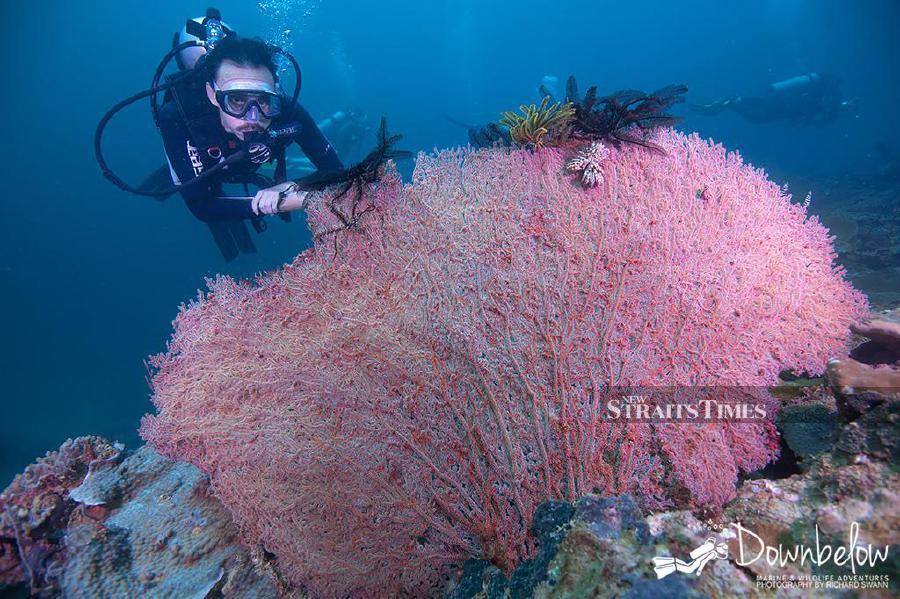
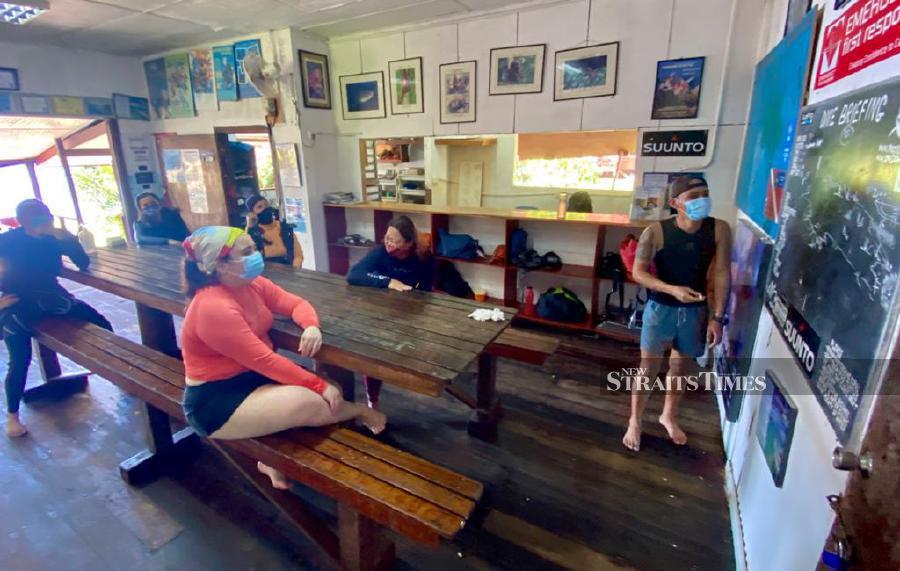
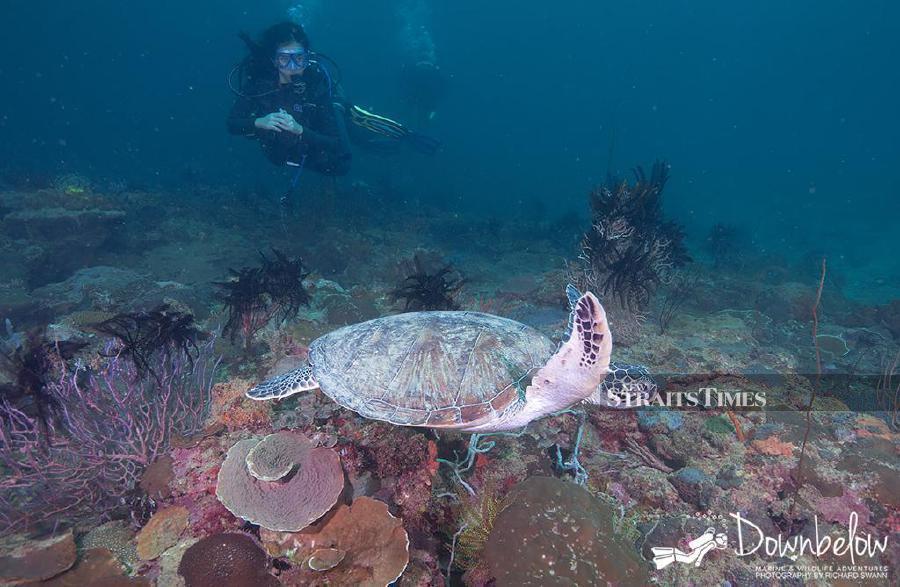
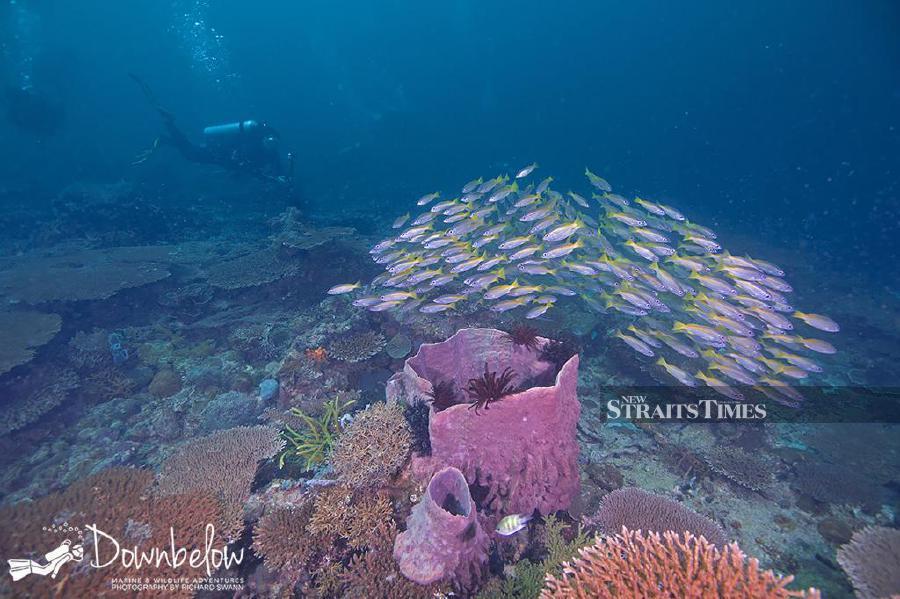
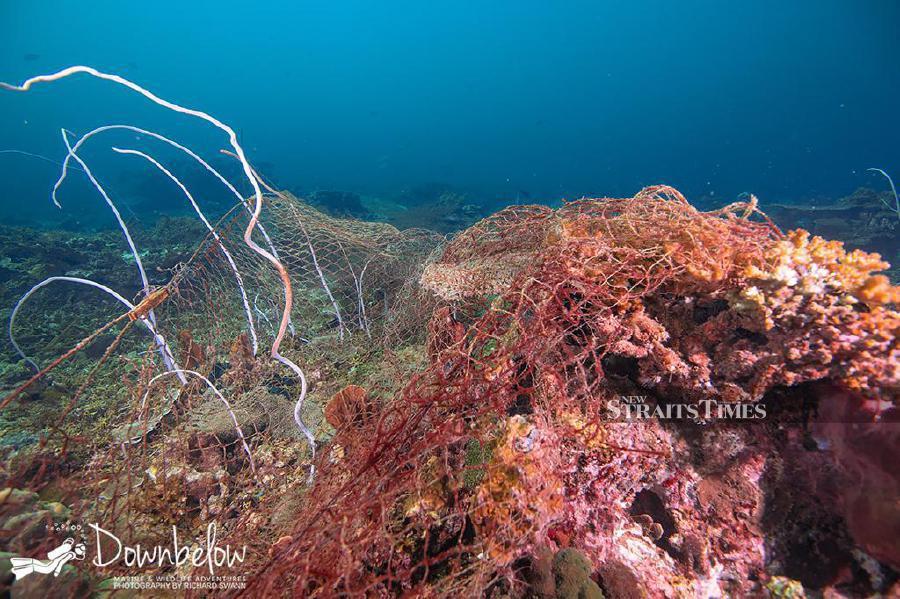
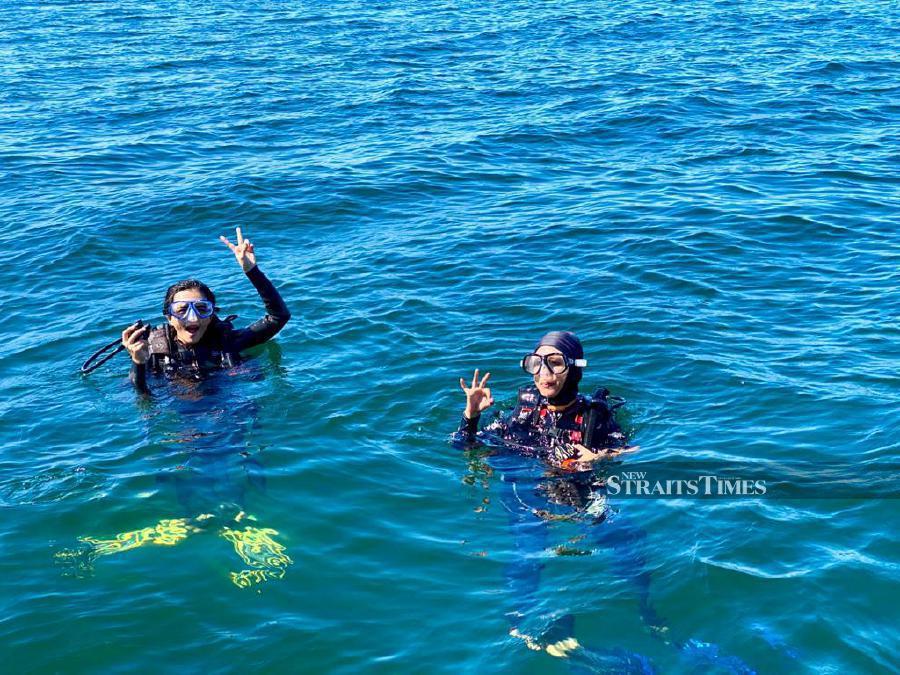
Comments
Post a Comment